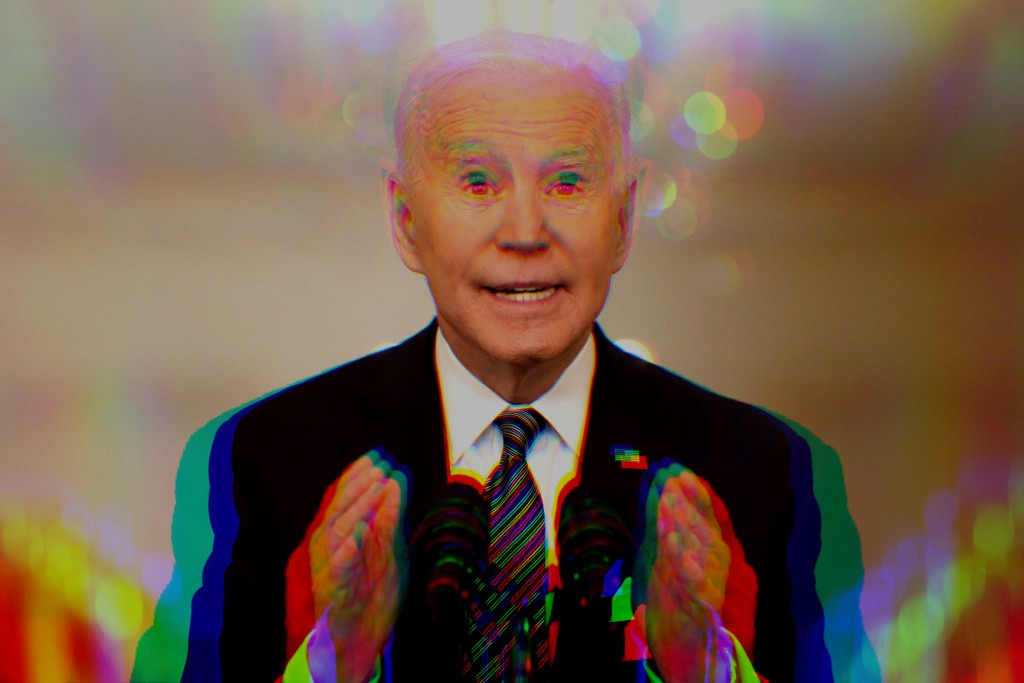
Democracy Without Politics
This essay was originally published by American Mind on January 18th, 2024
The Left seeks to overturn the 2024 election even before it happens.
As the 2024 election campaign begins in earnest, the Democratic Party has apparently decided that its central electoral pitch will be that American democracy itself is at stake in this year’s national elections. This was the central theme of President Biden’s first major campaign speech of the year, dutifully echoed by lower-ranking Democrats and the party’s megaphones in the media and among the Left intelligentsia. Unable to run on a record of competent custodianship of the seemingly less lofty policy issues that concern many voters—like the economy, foreign policy, and immigration—Biden and the Democrats must present themselves as the only backstop against the dire prospect of regime change.
This kind of framing is not, moreover, limited to the Left’s understanding of American politics. It is how they view, or at least how they choose to present, the world political situation. Case in point: an op-ed recently appeared in Bloomberg News offering the strange warning that “2024 is the Year of Elections, and That’s a Threat to Democracy.” Despite its alarming title, the piece is less frightening than instructive. Written by a former deputy editor at the New York Times, Tobin Harshaw, the column sheds valuable light on the character and thought processes of the liberal governing class.
The piece is lacking in real substance; indeed, it is almost vacuous. Its vacuity is instructive, however, because it opens a window on the thinking—or, if that is too generous a term, on the mental reflexes—of the class of people who govern the western nations, and who evidently believe that they have a right to govern them.
The article is entirely dedicated to admonishing us that democracy is at stake all over the world in 2024, but without ever defining the term “democracy,” or dealing with the evident paradox that elections, the main mechanism of modern self-government, could somehow be a “threat” to democracy. Careful readers will accordingly suspect that they are being manipulated by an author who is a conscious propagandist or who is himself the victim of propaganda.
This suspicion is confirmed when Harshaw gets to the specific threats to democracy, both past and present, that he finds so worrisome. The list will be familiar to anyone who has followed politics for the last eight years: Brexit, the election of Donald Trump, the conceivable re-election of Donald Trump, the possible rise to political power of various “populist” and “right-wing” (terms that are also never defined) parties in the western world.
None of this is a threat to democracy in an objective sense—that is, as it has been traditionally understood, as “government by the people.” Presumably, majorities of voters in any nation are, under the proper circumstances, as capable of being persuaded of right-wing views as they are of centrist or left-wing views. Everything will depend on the voters’ preferences and the nature of the challenges their societies face, and their judgment of the effectiveness of the parties currently in power. If the Right wins, you don’t have the death of democracy; you have an experience of right-wing democracy. In this there is nothing “unthinkable”—a term Harshaw uses freely to discredit political outcomes that he cannot countenance but the badness of which he cannot explain.
The liberal establishment in the western world no longer uses the term “democracy” to describe a form of government in which the majority’s preferences are translated into public policy through competitive elections. They instead use it as a polemical term to discredit and demonize those political and social movements that are a threat to their remaining in power. Democracy no longer means that the people get to decide. It means a specific set of policies that liberals prefer, the revision of which they cannot abide.
Calls from the establishment Left to protect democracy are nothing more than propaganda. Indeed, the title of Harshaw’s piece recalls the propaganda so effectively lampooned by George Orwell in 1984. “War is Peace.” “Ignorance is Strength.” “Freedom is Slavery.” And now, we are told, “Elections Threaten Democracy.”
This is nothing new, by the way. Consider the way the UK’s elites tried to cripple Brexit, even after a majority had voted for it. Consider how American elites were happy to use unelected judges to redefine marriage and, at the same time, demonized anyone who complained about it. Nobody could seriously conclude that such elites have any interest in “democracy,” understood as rule by the people.
The good news is that “democracy” is not at stake in 2024. What is at stake is instead the power of a particular elite that has governed, and desperately wants to continue governing, certain societies. That some faction wants to hold on to power is not surprising, but the possibility it might lose does not constitute a crisis of the legitimacy of the state. In a real democracy the people have a right to get rid of their present governing elite and give themselves a new one. The bad news is that we are at present stuck with a governing elite that has degenerated to the point that it is willing to use “democracy”—a term that should describe the common ground that all citizens, Left, Right, and Center, can embrace—as a synonym for the maintenance of their own power, regardless of how self-serving and incompetent their use of that power. This alone is a good reason to vote them out of office.

 Twitter
Twitter
 Facebook
Facebook